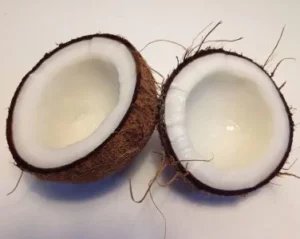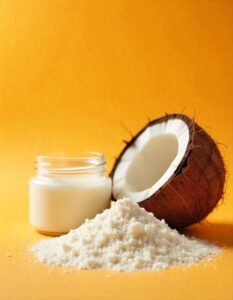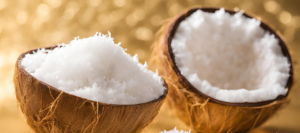Unveiling Indian Coconut Varieties: The Ultimate Guide for Exporters
Meta Title: Unveiling Indian Coconut Varieties: The Ultimate Guide for Exporters
India is renowned for its vast coconut plantations, and the country is one of the leading exporters of coconut and coconut byproducts. The popularity of Indian coconuts can be attributed to their superior quality, unique flavor, and versatility in various applications. If you are an exporter looking to source coconuts from India, this ultimate guide will unveil the secrets of Indian coconut varieties, helping you make informed decisions and ensure the best quality products for your market.
Understanding Indian Coconut Varieties
India boasts a wide range of coconut varieties, each with its own distinct characteristics. The following are some of the most prominent coconut varieties exported from India:
1. Tall Coconuts (Typica)
Tall coconuts, also known as Typica, are the most common coconut variety grown in India. They are tall and robust trees that can reach up to 25 meters in height. These coconuts are preferred for their abundant water content and thick, fibrous husk. They are predominantly cultivated in the coastal regions of southern India, including the states of Kerala, Karnataka, and Tamil Nadu.
2. Dwarf Coconuts (Nana)
Dwarf coconuts, also referred to as Nana, are smaller in stature compared to tall coconuts. They typically grow to a height of 5-7 meters and are known for their early productivity. Dwarf coconut varieties are highly sought after due to their ease of cultivation and higher yield. These coconuts are primarily cultivated in the coastal regions of Karnataka and Kerala.
3. Hybrid Varieties
In addition to the traditional tall and dwarf coconut varieties, India also produces several hybrid coconut varieties. These hybrids are the result of crossbreeding tall and dwarf coconuts, combining the desirable traits of each variety. Hybrid coconut trees offer increased productivity, disease resistance, and adaptability to various climatic conditions. Some popular hybrid coconut varieties include Chowghat Orange Dwarf, Chowghat Green Dwarf, and Chowghat Yellow Dwarf.
The Secrets Behind Indian Coconut Quality
Indian coconut cultivation follows strict agricultural practices to ensure the production of premium quality coconuts. Here are some key factors contributing to the superior quality of Indian coconuts:
- Rich Soil and Ideal Climate
Coconut palms thrive in tropical climates with abundant rainfall and well-drained soils. The coastal regions of southern India offer the perfect conditions for coconut cultivation. The sandy coastal soils, coupled with the region’s moderate temperatures, provide an ideal environment for coconut tree growth and development.
- Organic Cultivation Practices
Many coconut farms in India follow organic cultivation practices, eliminating the use of chemical fertilizers and pesticides. This results in coconuts that are free from harmful residues, making them a healthier choice for consumers.
- Traditional Knowledge and Experience
Coconut cultivation in India has been a part of its cultural heritage for centuries. Indian farmers possess intricate knowledge and expertise in coconut cultivation techniques, passed down through generations. This wealth of traditional knowledge contributes to the production of high-quality coconuts.
Ensuring Quality in Indian Coconut Export
When selecting an Indian coconut supplier for export, it is crucial to consider certain factors to ensure the quality and reliability of the products. Here are some key points to keep in mind:
- Certifications and Standards
Look for suppliers who adhere to internationally recognized certifications and standards for quality control. Certifications such as ISO, HACCP, and USDA organic ensure that the coconuts meet strict quality benchmarks.
- Direct Sourcing from Farms
Choosing suppliers who have direct access to coconut farms ensures fresher and more authentic products. Direct sourcing eliminates middlemen, reducing the chances of product tampering or quality degradation.
- Quality Inspections and Packaging
Ensure that the supplier conducts thorough quality inspections before shipment. The coconuts should be cleaned, sorted, and packed appropriately to withstand long-distance transportation. Proper packaging plays a vital role in preserving the quality and freshness of the coconuts.
Exploring the Versatility of Indian Coconuts
Indian coconuts are not only valued for their water and flesh but also for the wide array of byproducts derived from them. Here are some popular coconut byproducts that make India a significant player in the international market:
Coconut Oil: India is one of the largest producers of coconut oil globally. Known for its numerous health benefits and culinary uses, Indian coconut oil is extracted using traditional cold-press methods, ensuring its natural goodness.
Desiccated Coconut: Desiccated coconut, widely used in baking and confectionery, is another popular export from India. It is produced by drying and shredding the white coconut flesh and is available in various grades to cater to specific requirements.
Coconut Milk and Cream: The creamy extract derived from the grated flesh of mature coconuts, coconut milk, and cream are used in a wide range of savory and sweet preparations. Indian coconut milk is valued for its rich flavor and versatility in multiple cuisines.
Conclusion
India’s rich coconut heritage, favorable climate, and organic practices contribute to the exceptional quality of its coconut varieties. As an exporter, understanding the different Indian coconut varieties and sourcing from reputable suppliers is vital to ensure the procurement of high-quality coconuts and byproducts. By unveiling the secrets of Indian coconut varieties, this guide equips exporters with valuable knowledge to make informed decisions and establish lasting partnerships with Indian coconut suppliers. So, embark on your coconut export journey and discover the unrivaled flavors and versatility of Indian coconuts!
External Links:
– Click here for more information on Indian coconut exports
– Learn about the benefits of coconut oil
Internal Links:
– Check out our range of coconut byproducts
– Discover the health benefits of coconut milk
“Coconut trees do not tape out; they like to take over.” – Avijeet Das




